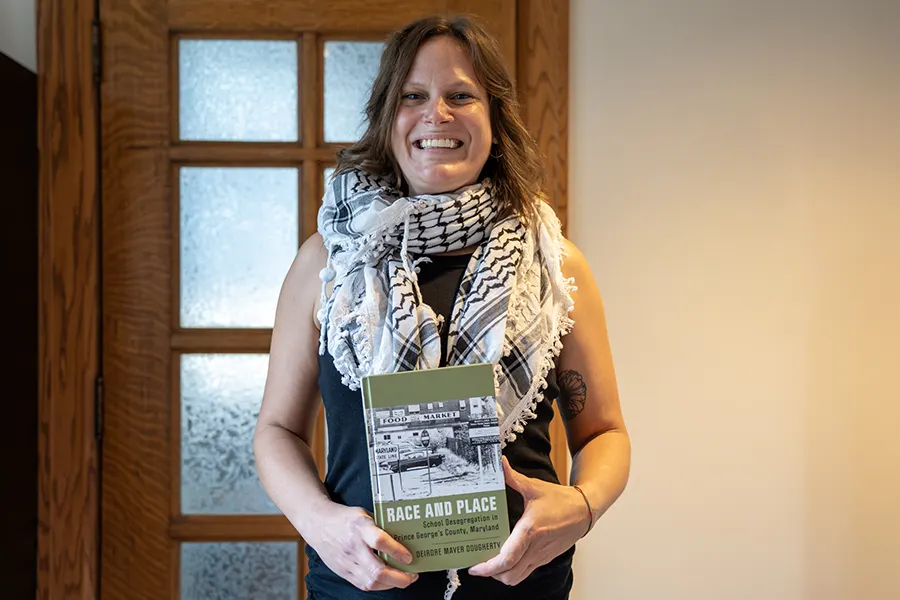

Knox Professor Deirdre Mayer Dougherty Celebrates New Publication
A single question sparked a journey that became a dissertation, a search for answers, and, ultimately, a passion project: How does race and place play a part in educational funding and biases?
Several years later, that project came to fruition as Knox College Associate Professor of Educational Studies Deirdre Mayer Dougherty published her book, Race and Place: School Desegregation in Prince George’s County, Maryland.
Dougherty celebrated her first publication with two discussions on campus in October, one in the Abolition Lab and another in the Trustees Room of Alumni Hall.
“It’s really important that Knox provides the resources for faculty to do this kind of work,” Dougherty said. “This kind of work matters; it’s what we’re trained to do. It only helps us be better teachers and researchers. ”
Race and Place looks at education inequality throughout the 20th century in Prince George’s County, Maryland, as the community goes through the process of school desegregation. It focused on how the policies that emerged during this time, ranging from school equalization, school choice, neighborhood schools, school construction, school closure, busing for racial integration, and school discipline, impacted life in the community.

While in a teaching fellow program, Dougherty had questions about her school, noticing immediate imbalances in education, but was not receiving answers.
“That made me interested,” she said. “I didn’t know anything about education policy, so this project began as a history project for my dissertation, then evolved into a few journal articles, and now it’s a book. I’m not sure why there were so many iterations, but maybe it’s a love story to a place I researched for about 10 years. I think it also is a way to look at what’s going on now in policy and how it relates to the past.”
As an educator of future teachers, Dougherty admits her research has an impact on how she prepares her students for their futures leading a classroom.
“I try to distance my students from looking at individual actions and thinking of those as pertaining to a child or pertaining to a teacher and thinking ‘they’re failing because they can’t do what they need to do,’ but to look at the larger structure that creates the situation as to why the child is failing,” she said.
Dougherty’s book shows how policies reinforce assumptions and create new racial truths about people and schooling. She also reflected on broader implications, noting, “I think of a theorist who said, ‘history of the present is not just what is happening, but how we got here.’ We’re always tracing back how we got here.”
Published on October 23, 2025
Scott Holland, Knox College Office of Communications

